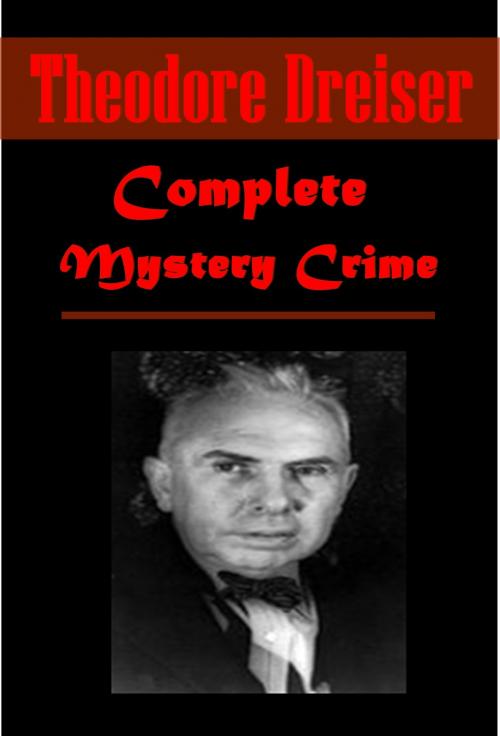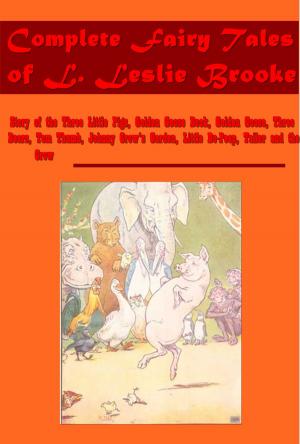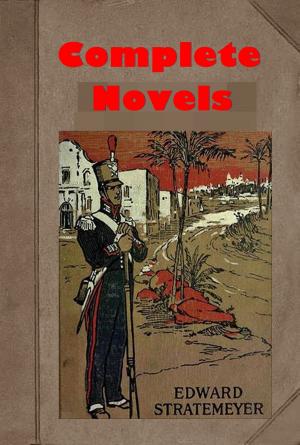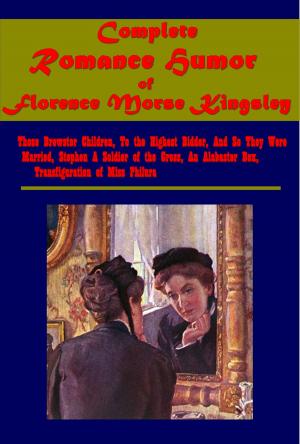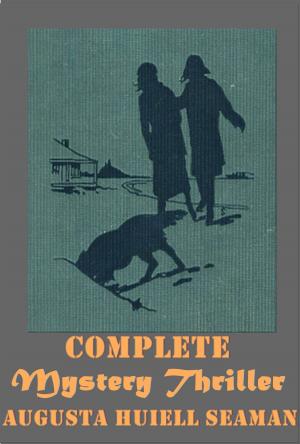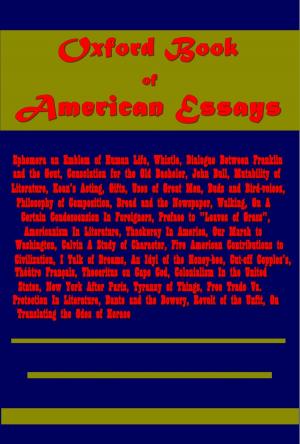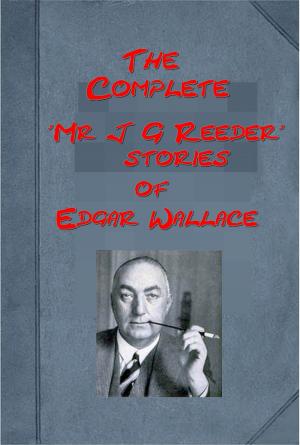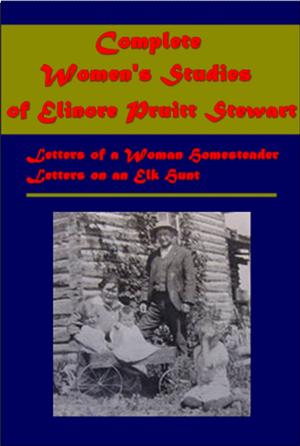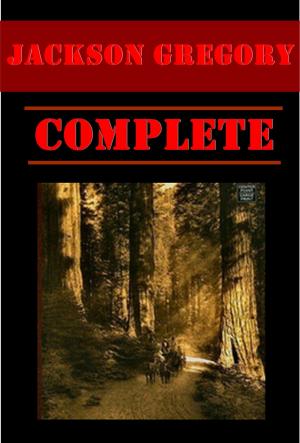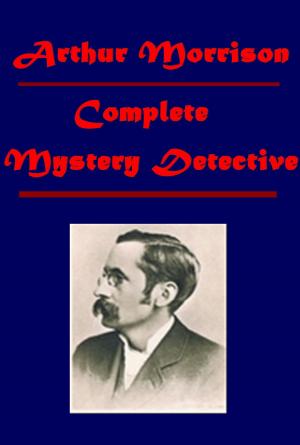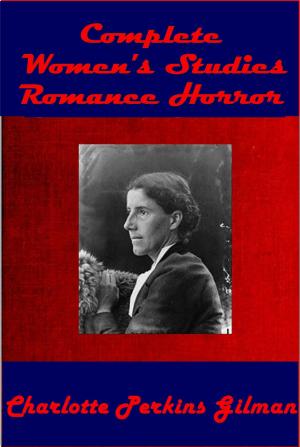| Author: | Theodore Dreiser | ISBN: | 1230000305017 |
| Publisher: | AEB Publishing | Publication: | February 22, 2015 |
| Imprint: | Language: | English |
| Author: | Theodore Dreiser |
| ISBN: | 1230000305017 |
| Publisher: | AEB Publishing |
| Publication: | February 22, 2015 |
| Imprint: | |
| Language: | English |
An American novelist and journalist of the naturalist school. His novels often featured main characters who succeeded at their objectives despite a lack of a firm moral code, and literary situations that more closely resemble studies of nature than tales of choice and agency. Dreiser's best known novels include Sister Carrie (1900) and An American Tragedy (1925).
Includes an active table of contents for easy navigation.
Contents
Twelve Men (1919)
The Titan (1914)
Jennie Gerhardt (1911)
The ''Genius'' (1915)
Sister Carrie (1900)
The Mighty Burke (1911)
The Financier (1912)
Twelve Men (1919)
Character sketches, combining the best of biography with the finest of narrative - short and illustrative.
Jennie Gerhardt (1911)
The life story of a woman who craved affection. Unselfish, sweet, trusting, she is the daughter of poor working people in a Western city. She attracts the attention of one who sits in the seats of the mighty and he plans education and marriage with this girl hungry for love and grateful for recognition. But there comes a tragedy which leaves Jennie to face the world alone, with a dominant instinct for sympathy and love, something of which she accepts at last.
The ''Genius'' (1915)
The insistent theme of Mr. Dreiser's work is desire, perennial, unquenchable. No matter how badly Mr. Dreiser might do his work, he would be significant as the American novelist who has most felt this subterranean current of life. Many novelists have seen this current as a mere abyss of sin from which the soul is to be dragged to the high ground of moral purpose and redemption, but this will not quite do. The great interpreters see life as a struggle between this desire and the organized machinery of existence, but they are not eager, as we are, to cover up and belittle the desire.
Sister Carrie (1900)
The story of a woman who flees country life for Chicago, Illinois and falls into a wayward life of sin. One of the most important novels America has ever produced, it ruthlessly exposes the hypocrisy and meanness of middle-class standards, and establishes a new tradition in literary realism.
The Financier (1912)
The story concerns the rise of Cowperwood from obscurity to great power in Philadelphia finance, his marriage, his ruin at the hands of the politician who had befriended him and whom he had repaid by debauching his daughter, his term in prison, his financial rehabilitation, and the swift-following descent upon Chicago with his inamorata for future but undivulged activities.
An American novelist and journalist of the naturalist school. His novels often featured main characters who succeeded at their objectives despite a lack of a firm moral code, and literary situations that more closely resemble studies of nature than tales of choice and agency. Dreiser's best known novels include Sister Carrie (1900) and An American Tragedy (1925).
Includes an active table of contents for easy navigation.
Contents
Twelve Men (1919)
The Titan (1914)
Jennie Gerhardt (1911)
The ''Genius'' (1915)
Sister Carrie (1900)
The Mighty Burke (1911)
The Financier (1912)
Twelve Men (1919)
Character sketches, combining the best of biography with the finest of narrative - short and illustrative.
Jennie Gerhardt (1911)
The life story of a woman who craved affection. Unselfish, sweet, trusting, she is the daughter of poor working people in a Western city. She attracts the attention of one who sits in the seats of the mighty and he plans education and marriage with this girl hungry for love and grateful for recognition. But there comes a tragedy which leaves Jennie to face the world alone, with a dominant instinct for sympathy and love, something of which she accepts at last.
The ''Genius'' (1915)
The insistent theme of Mr. Dreiser's work is desire, perennial, unquenchable. No matter how badly Mr. Dreiser might do his work, he would be significant as the American novelist who has most felt this subterranean current of life. Many novelists have seen this current as a mere abyss of sin from which the soul is to be dragged to the high ground of moral purpose and redemption, but this will not quite do. The great interpreters see life as a struggle between this desire and the organized machinery of existence, but they are not eager, as we are, to cover up and belittle the desire.
Sister Carrie (1900)
The story of a woman who flees country life for Chicago, Illinois and falls into a wayward life of sin. One of the most important novels America has ever produced, it ruthlessly exposes the hypocrisy and meanness of middle-class standards, and establishes a new tradition in literary realism.
The Financier (1912)
The story concerns the rise of Cowperwood from obscurity to great power in Philadelphia finance, his marriage, his ruin at the hands of the politician who had befriended him and whom he had repaid by debauching his daughter, his term in prison, his financial rehabilitation, and the swift-following descent upon Chicago with his inamorata for future but undivulged activities.
